Govorestat
Govorestat (also called AT-007) is an investigational, novel Aldose Reductase Inhibitor (ARI) being developed for the treatment of several rare diseases, including Galactosemia, SORD Deficiency and PMM2-CDG. Govorestat is a potent and selective compound, which crosses the blood brain barrier into the Central Nervous System (CNS penetrant).
Govorestat has received Orphan Medicinal Product Designation from the European Medicines Agency (EMA), and both Orphan Drug and Pediatric Rare Disease designations from the U.S. Food and Drug Administration (FDA) for the treatment of Galactosemia, a rare metabolic disease, and Phosphomannomutase 2 Deficiency – a Congenital Disorder of Glycosylation (PMM2-CDG).
Development Status: A New Drug Application (NDA) for govorestat has been accepted for priority review with the FDA and the Marketing Authorization Application (MAA) has been validated and is currently being reviewed by the EMA’s Committee for Medicinal Products for Human Use (CHMP) for the treatment of Galactosemia. Additionally, govorestat is currently in pivotal-stage development for the treatment of SORD Deficiency.
Govorestat for Galactosemia
Govorestat is a once-daily oral compound that inhibits the enzyme Aldose Reductase. Aldose Reductase plays a crucial role in the pathogenesis of Galactosemia.
Galactosemia is a rare, slowly progressing metabolic disease caused by a genetic inability to break down the sugar galactose. Aldose Reductase converts galactose into galactitol, a toxic metabolite that builds up in tissues and organs and can cause long-term disease complications. Galactosemia has no known cure or approved treatment.
We believe Govorestat has the potential to be the first and only approved treatment for Galactosemia.
Govorestat was evaluated in a Phase 1/2 Registrational Study (ACTION-Galactosemia) of adult patients with Galactosemia. The study confirmed that govorestat was safe and well tolerated. Govorestat decreased levels of galactitol, a key biomarker of Aldose Reductase function, in all treated patients without increasing galactose levels or levels of other galactose metabolites (such as Gal1P). The reduction in galactitol was rapid, beginning on the first day of treatment, and sustained over one month of treatment; dose-dependent; and statistically significant at the higher doses of 20 & 40 mg/kg. At the 20 mg/kg dose, an approximately 50% reduction in galactitol was observed compared to baseline levels. The pharmacokinetic results showed that govorestat plasma concentrations increased linearly in a dose-dependent manner and support once-daily dosing.
The ACTION-Galactosemia Kids registrational Phase 3 study was designed to evaluate the impact of govorestat vs. placebo on clinical outcomes over time in 47 children aged 2-17 with Galactosemia.
Biomarker data from the dose range finding pharmacokinetic / pharmacodynamic portion of the pediatric ACTION-Galactosemia Kids study demonstrated a substantial reduction in mean plasma galactitol of 40%, which was statistically significant (p<0.001) vs. placebo. Reduction in plasma galactitol was rapid and sustained, with no impact on levels of galactose or Gal-1p, and was similar across dose groups. Govorestat was safe and well tolerated in children of all ages (2-17).
Additionally, analysis of the 47 children in the ACTION-Galactosemia Kids study demonstrated a clear correlation between baseline galactitol level and baseline clinical functional outcomes. Children with higher plasma galactitol levels displayed greater disease severity vs. children with lower plasma galactitol levels at baseline. Galactitol was the only biomarker demonstrating correlation with disease severity in pediatric patients with Classic Galactosemia. Higher galactitol levels, but not higher Gal-1p levels, were associated with greater disease severity overall and on each of the four quadrants of CNS function. This data is the first demonstration of correlation of a biochemical biomarker with severity of disease in Galactosemia patients.
Results from the ACTION-Galactosemia Kids study demonstrated clinical benefit of govorestat on activities of daily living, behavioral symptoms, cognition and tremor. Consistent with prior findings in adult and pediatric populations, govorestat continued to be safe and well-tolerated throughout the trial period in all age groups (2-17).
Govorestat has transformative therapeutic potential in two additional rare diseases that currently have no approved therapies: sorbitol dehydrogenase deficiency (SORD) and phosphomannomutase 2 deficiency – a congenital disorder of glycosylation (PMM2-CDG).
Govorestat for SORD Deficiency
Sorbitol Dehydrogenase (SORD) Deficiency is a rare, progressive, debilitating hereditary neuropathy that affects peripheral nerves and motor neurons. SORD Deficiency is one of the most common forms of recessive hereditary neuropathy and affects approximately 3,300 patients in the U.S. and 4,000 patients in Europe. The disease is caused by a lack of the enzyme sorbitol dehydrogenase, responsible for the metabolism of sorbitol, which causes sorbitol to accumulate at high levels and become toxic to the body. Intracellular sorbitol accumulation results in significant disability, loss of sensory function, neuromuscular dysfunction, and decreased mobility.
In a pilot study in patients with SORD Deficiency, sorbitol level correlated with disease severity, and govorestat treatment substantially reduced sorbitol levels by a mean of 66% from baseline. In an animal model of disease, elevated sorbitol resulted in neuronal damage and decline in mobility, and govorestat treatment prevented the disease phenotype by inhibiting sorbitol production.
The ongoing placebo-controlled Phase 2/3 INSPIRE study is evaluating the impact of govorestat treatment on sorbitol reduction and clinical outcomes in patients with SORD Deficiency.
In a pre-specified, 12-month interim analysis comprised of a clinical efficacy primary endpoint based on correlation of sorbitol with composite clinical outcome measures, and a pharmacodynamic (PD) biomarker primary endpoint based on sorbitol reduction, govorestat treatment demonstrated:
- A statistically significant correlation between sorbitol level and the prespecified CMT-FOM composite clinical endpoint (10-meter walk-run test, 4 stair climb, sit to stand test, 6-minute walk test and dorsiflexion) (p=0.05)
- Govorestat treatment provided sustained reduction in sorbitol level in patients with SORD Deficiency over 12 months of treatment, which was statistically significant compared to placebo (p<0.001)
- Govorestat treatment also resulted in a highly statistically significant effect (p=0.01) on the CMT Health Index (CMT-HI), an important patient-reported outcome measure of disease severity and well-being, which was a secondary endpoint in the study. Aspects of the CMT-HI that demonstrated a treatment effect included lower limb function, mobility, fatigue, pain, sensory function, and upper limb function
- Govorestat was safe and well tolerated, with similar incidence of adverse events between active and placebo-treated groups
The company plans to discuss a potential NDA submission with the FDA based on the clinical data to date.
PMM2-CDG
PMM2-CDG is the most common congenital disorder of glycosylation and presents with a range of debilitating systemic and CNS complications. As a result of reduced activity of the PMM2 enzyme, patients with PMM2-CDG have imbalances in sugar metabolism pathways, including Aldose Reductase activity. Initial data in fibroblast cell lines derived from patients with PMM2-CDG demonstrates that govorestat increases PMM2 activity and may provide therapeutic benefit in PMM2-CDG patients.

